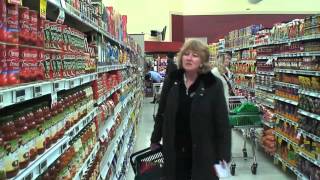Government authorities in lucrative Western markets are intensifying their efforts to eliminate false green claims as a result of consumer concerns that these claims are generalised, vague, and ill-founded without robust science backing. The four government authorities shown above in Australia, USA, the UK, and the EU are all involved with active and widespread campaigns against false green claims, with some offenders suffering large financial penalties and reputational damage.
A recent report by Chapman Tripp on behalf of the Aotearoa Circle entitled Protecting New Zealand's Competitive Advantage reveals that more than 80 percent of New Zealand's exports by value were sent to countries with mandatory climate-related disclosures (CRD) in force or proposed. Tighter regulation for environmental, social and governance (ESG) claims are also inbound. Free trade agreements (FTA) may include ESG and CRD-related declarations. Effectively this means that all New Zealand exporters will need to have their sustainability story sorted in order to trade in these high value markets.
The issue of lack of disclosure of the sustainability status of products and services is not new, especially in the fast-moving-consumer-goods (FMCG) market. In 1998 when the Green Tick® Certification Scheme was invented, there were no green claims at all on a typical basket of goods in the supermarket.
Susan seeking sustainable products in a New Zealand supermarket
Now in a typical New Zealand supermarket, a plethora of poorly supported green claims are made across various product categories. Only a few products pop up if one searches for "certified" products using supermarket on-line shopping tools. A search on 30 April 2024 generated these results:
Woolworth's - 6 'certified' products.
Pak'n Save - 16 'certified' products.
New World - 19 'certified' products.
Four Square - 0 'certified' products.
None of the claimed certifications lead you to an independent certification report, and only one product could be found listed on the certifier's website. All the supermarkets carry a disclaimer as to the reliability of product information shown on their websites.
In this 2024 review, none of the items from the original 1998 shopping list were independently certified for sustainability or carbon. In fact, none of the seven products had any green claim at all, just like in 1998. This is surprising, given the major shifts in buying power observed recently as Millennials (age 28-43) and Gen-Z (age 12-27) shoppers come into economic prominence and buy green (Deloitte 2023).
Tightening legal standards and growing green consumer demand are no problem for Green Tick® Certification. The Green Tick® Certification Scheme was designed to provide exactly what government authorities and consumers are looking for: independent, obvious, reliable science-based ecolabelling with powerful, easily understood imagery. The Green Tick® roundel-with-green-tick-image backed by a readily available certification report on the Green Tick® Registry enables consumers to quickly identify genuinely sustainable products, services, projects, and producers worldwide. A win-win for producers and consumers.
Green Tick® - The Ultimate Ecolabel.
Our three most timely and relevant ecolabels. Full range here.

















コメント